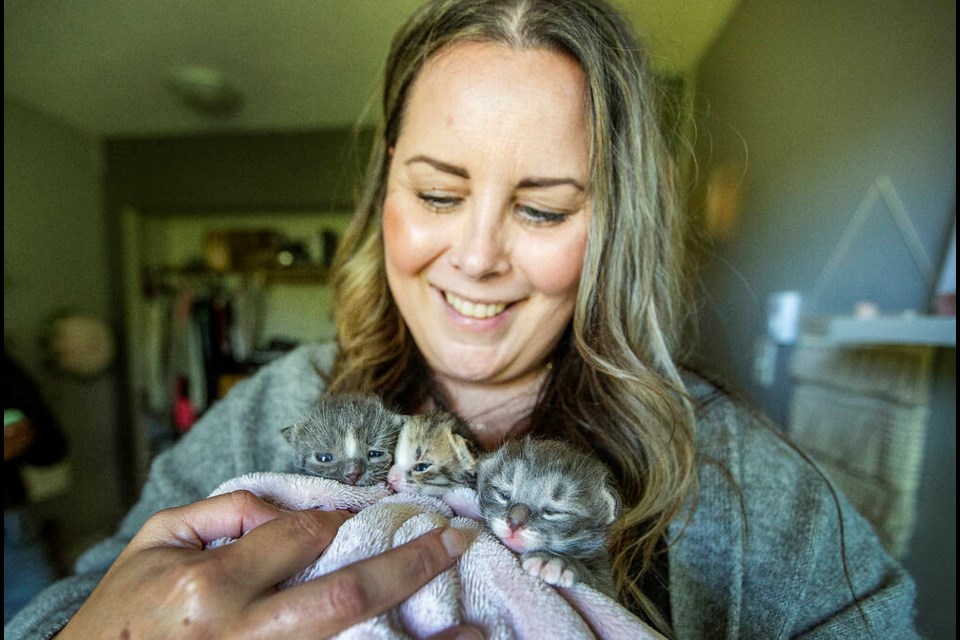The B.C. SPCA has seen an abrupt slowdown in animal adoptions this summer, but has not experienced any significant increase in surrendered animals experienced by shelters in other parts of Canada following the lifting of pandemic restrictions.
During the height of the COVID-19 pandemic in 2020-21, record numbers of people sought to adopt animals to help cope with social isolation.
“People were lonely and looking for companionship. The last two years have been incredibly unusual. Sometimes we would get 50 to 100 applications when a puppy came up for adoption,” said Lorie Chortyk, general manager of communications for the B.C. SPCA. “It was wonderful to see people very keen to adopt, and interest has remained very strong — until now.”
Last year, many people became frustrated when they could not act fast enough to adopt. This year, the B.C. SPCA has 1,500 animals in its care — 700 ready for adoption immediately and the remainder in volunteer foster homes.
After finding homes for more than 5,000 animals so far this year, the animal welfare organization has experienced an abrupt slowdown this summer.
“We think it may be because people are finally able to go on vacations this year,” said Chortyk. “But it also coincides with ‘kitten season’ — with the majority of cats having their litters. It creates a huge influx of kittens looking for … homes.”
Leigh Patten, new to fostering, hosts Lucky and her three two-week-old kittens — Po, Chubby and Pink. “I didn’t know what to expect, but so far it is very rewarding,” said Patten, with the curious kittens starting to exploring their surroundings under the watchful eye of their mother. “Fostering is a small act that I can do to make it a better world.”
The kittens will be up for adoption when they are eight weeks. Patten intends to adopt Lucky at the end of the fostering term.
Chortyk said B.C was the outlier among shelters across Canada, which reported a significant increase in surrendered animals as pandemic restrictions eased.
“We did not see this particular trend in our facilities. We saw it playing out across the country and prepared ourselves by increasing the resources to help people with their pets. We helped people deal with their transition back to work and working with their pets on issues such as separation anxiety,” she said.
While dogs, puppies, cats and kittens are the most commonly adopted animals, they currently have 110 rabbits, guinea pigs, hamsters, horses and farm animals such as goats, pigs and chickens. “We have so many incredible animals in our care who want nothing more than to be part of a forever family.”
For more information, go to adopt.spca.bc.ca.



